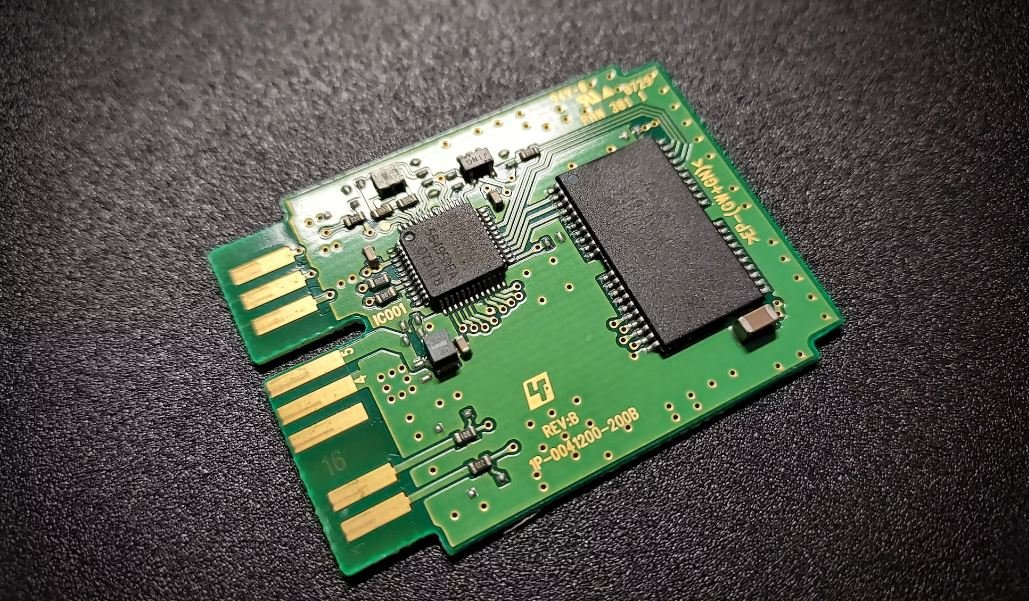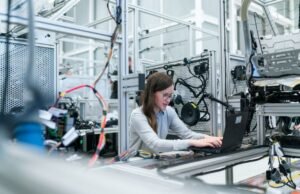Deep Learning Quiz
Whether you are a beginner or an expert in the field of Deep Learning, taking a quiz can be a fun way to test your knowledge and learn new things. In this article, we will present a brief deep learning quiz to challenge your understanding of this fascinating field. So, let’s get started!
Key Takeaways
- Test your knowledge of Deep Learning with this quiz.
- Learn and reinforce key concepts in the field.
- Challenge yourself and discover areas for improvement.
Quiz Questions
Question 1:
What is deep learning?
- a) A subset of machine learning that focuses on artificial neural networks.
- b) A technique used to train deep neural networks.
- c) A method to extract high-level features from raw data through multiple layers of neural networks.
- d) All of the above.
Question 2:
What are the main advantages of deep learning?
- a) Ability to automatically learn hierarchical representations.
- b) High performance in complex tasks such as image and speech recognition.
- c) Better understanding and interpretation of large datasets.
- d) All of the above.
Question 3:
Which activation function is commonly used in deep learning?
- a) Sigmoid
- b) Tanh
- c) ReLU (Rectified Linear Unit)
- d) All of the above.
Quiz Results
After answering the quiz questions, you can check your results below.
| Question | Correct Answer | Your Answer |
|---|---|---|
| Question 1 | d) All of the above. | d) All of the above. |
| Question 2 | d) All of the above. | c) Better understanding and interpretation of large datasets |
| Question 3 | c) ReLU (Rectified Linear Unit) | c) ReLU (Rectified Linear Unit) |
Conclusion
Participating in quizzes like this one can enhance your understanding of deep learning by reinforcing key concepts and identifying areas that need further improvement. So, keep exploring and experimenting with deep learning techniques to expand your knowledge and skills in this rapidly evolving field.

Common Misconceptions
When it comes to deep learning, there are several common misconceptions that people often have. These misconceptions can lead to misunderstandings and false expectations about the capabilities and limitations of deep learning. Here are some of the most common misconceptions:
1. Deep learning is the same as artificial intelligence
- Deep learning is a subset of artificial intelligence that focuses on training deep neural networks.
- Artificial intelligence encompasses a wider range of technologies and approaches.
- While deep learning has made significant advancements in certain areas, it is not equivalent to general artificial intelligence.
2. Deep learning can solve any problem
- Deep learning excels in certain domains, such as image and speech recognition.
- However, it may not be the most suitable approach for all types of problems.
- Some problems may require different techniques or a combination of approaches to achieve optimal results.
3. Deep learning models always provide accurate predictions
- Deep learning models can produce impressive results, but they are not infallible.
- Predictions made by deep learning models may still contain errors or inaccuracies.
- The accuracy of the predictions depends on several factors, including the quality and quantity of training data, the design of the model, and the specific problem being tackled.
4. Deep learning only works with enormous amounts of data
- While deep learning models often benefit from large datasets, they are not solely dependent on vast amounts of data.
- Deep learning algorithms can also achieve good results with limited data, especially with transfer learning techniques.
- The ability to generalize from limited data is one of the strengths of deep learning models.
5. Deep learning will replace human intelligence
- Deep learning is designed to augment and enhance human capabilities, not replace them.
- While it can automate certain tasks, deep learning models still require human intervention and oversight.
- Deep learning is a tool that can assist in decision-making and problem-solving, but it does not possess human-level intelligence.

Factors Affecting Deep Learning Performance
Deep learning performance can be influenced by various factors. The table below highlights some key factors and their impact on model accuracy.
Popular Deep Learning Frameworks
There are several deep learning frameworks widely used by researchers and practitioners. The table below compares some popular frameworks based on their features and user community.
Performance Comparison of Deep Learning Models
Different deep learning models excel in various tasks. The table below presents a performance comparison of various models across different domains.
Hardware Requirements for Deep Learning
Deep learning requires substantial computational resources. The table below outlines the hardware requirements for running deep learning models efficiently.
Deep Learning Libraries for Python
Python provides numerous libraries for deep learning. The table below explores different libraries, their features, and community support.
Deep Learning vs. Machine Learning
Deep learning and machine learning have distinct characteristics. The table below highlights the differences between these two approaches.
Applications of Deep Learning in Healthcare
Deep learning has found significant applications in the healthcare industry. The table below showcases some healthcare domains and their corresponding deep learning applications.
Deep Reinforcement Learning Algorithms
Deep reinforcement learning combines deep learning with reinforcement learning techniques. The table below depicts various algorithms used in this field.
Deep Learning in Natural Language Processing
Natural Language Processing (NLP) leverages deep learning for language-related tasks. The table below illustrates different NLP applications and the deep learning techniques utilized.
Deep Learning in Image Recognition
Deep learning has revolutionized image recognition. The table below compares different deep learning models for image recognition tasks.
In conclusion, deep learning is a powerful and versatile approach that has revolutionized various industries. From healthcare to image recognition, deep learning models and algorithms continue to push the boundaries of what is possible. By exploring different frameworks, models, and applications, one can unleash the full potential of deep learning in solving complex problems.
Frequently Asked Questions
What is deep learning?
How does deep learning differ from traditional machine learning?
What are some common applications of deep learning?
What are the advantages of deep learning?
What are some challenges in deep learning?
What are some popular deep learning frameworks?
What is the role of GPUs in deep learning?
What is transfer learning in deep learning?
How can one get started with deep learning?
Are there any recommended resources to learn more about deep learning?




